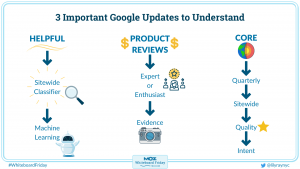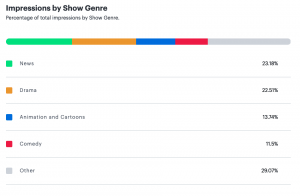AI tools can unlock insights into your audience’s behaviors and motivations, leading to improved performance.
Less than 10 minutes after the release of ChatGPT, I received a spam email from a company offering AI-generated blog posts, probably generated by the tool.
Maybe it wasn’t exactly 10 minutes, but it sure felt that way. Since then, I’ve received countless solicitations from companies offering all kinds of AI-generated solutions.
Will the ability to send better emails/content written more quickly by AI change the lives of B2B marketers for the better? Not yet. In fact, the greatest performance impact will not be seen in creation but in execution.
The promise of AI’s ability to deliver mass personalization and unique experiences is only realized if we focus on gaining better insight into the audience, specifically their preferences. Here’s why.
Faster doesn’t always mean better
The ability to create more content faster will only result in lower performance. Up to 89% of decision-makers said the content they encountered through the buying process was high quality, according to a 2019 Gartner research.
Buyers were almost at the point of saturation in their cognitive ability to consume more information. Simply put, more content will not result in increased consumption or understanding. The supply of content is at maximum, according to buyers. And that was four years ago. Imagine what they would say now.
This insight led to the discovery of the “sense-making” seller, a person with the important attributes of connecting the right information to the right person at the right time. They also possess the ability to filter out unnecessary information, giving the decision maker only the information they need in order to take action.
It’s one thing to have a human listening and understanding buyers’ needs during the sales process, but it’s another when trying to do this at the top of the funnel with marketing assets. This is where the opportunity for AI in B2B lies.
AI as the ‘sense maker’ for marketers
We’ve now built ABM stacks that typically encompass dozens of marketing technologies that pump out endless contact and engagement data. Still, the performance of those leads remains poor. Why? Because we don’t have a sense-making filter to align and route the right marketing asset to the right person for the right reason.
AI personality profiling tools represent an opportunity to be the sense maker for marketers. By understanding the distinct behavior of audiences, marketers can better:
- Align content based on individual preferences.
- Understand what intent “signals” are real.
- Create messaging that appeals to specific segments of the market.
Understanding buyer behavior offers value beyond just outbound marketing. It extends to routing and aligning business development resources. It can help sales managers understand how to align their teams based on prospects’ preferences with their engagement activity.
Understanding personal motivations and engagement behavior gives insight into what leads hold the most potential to move forward. It can identify which targets to avoid and the most fertile ground to build relationships.
AI sense making in action
Here’s an example. A professional services firm was getting high attendance for its webinar series, but very few attendees converted into leads. After analyzing the audience, they found that over 50% of their attendees had one dominant personality type.
Their webinars were rich with data and research, with their content mostly white papers. That was the problem. Their audience was made up of mostly strategists and consultants. Their behavior was to learn the information to inform others. Their content preferences were for “light” content that traveled easily and could stand independently without an explanation. Think infographics and animated videos.
After they shifted to lighter follow-up content, lead conversion post-webinar increased by 35%. This group had a personality profile of an “influencer,” or those who use the information to inform others. They were not the “lead” but pointed to the opportunity.
The organization started tracking sharing versus downloads and followed the content to the intended audience. They found that more content was not the answer. It was personalized content aligned with how the audience wanted to use it. The “sense maker,” in this case, was the influencer attendee who was routing the relevant information to the right person at the right time.
AI tools unlocked the insight into understanding their behaviors and motivations. A better understanding of the audience improved the performance of their outbound efforts.
And that is where the ROI will be found. If you’re truly interested in impacting performance, find the solutions that will provide insight into buyers. You don’t need more content. Buyers already told you they wanted and needed it four years ago.
The post Why AI will make the greatest impact on B2B audience insight, not content appeared first on MarTech.
MarTech(11)
Report Post




